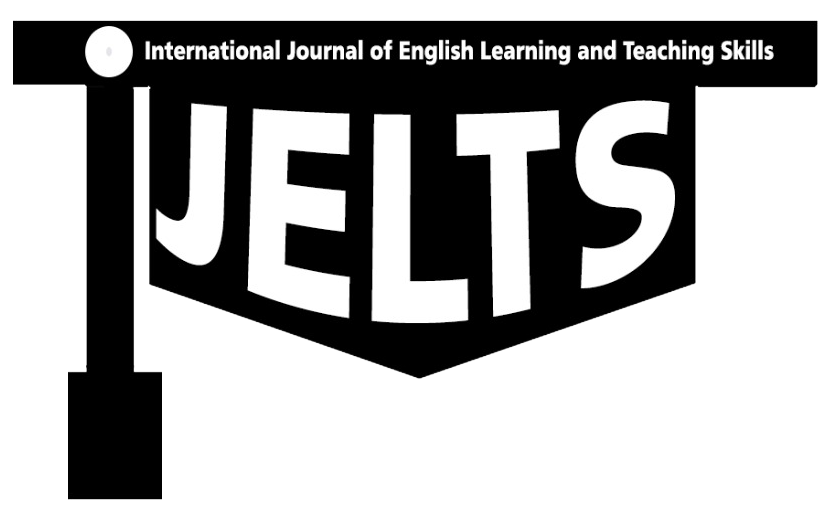Publication Ethics and Malpractice Statement
The International Journal of English Learning & Teaching Skills (IJELTS) is committed to upholding the highest standards of integrity in academic publishing. The journal expects all participants in the publishing process—including authors, editors, peer reviewers, and publishers—to adhere to ethical guidelines that ensure transparency, responsibility, and respect for intellectual contributions.
This statement outlines the ethical standards and practices adhered to by IJELTS.
Responsibilities of Authors
- Originality and Plagiarism
Authors must ensure that their manuscripts are entirely original and appropriately cite or quote the work and words of others. Plagiarism in any form is unacceptable and will result in immediate rejection. - Multiple Submissions
Submitting the same manuscript to more than one journal simultaneously constitutes unethical publishing behavior and is prohibited. - Acknowledgment of Sources
Proper acknowledgment of the work of others must always be given. Authors should cite publications that have influenced their work and provide credit to others where due. - Authorship Criteria
Authorship should be limited to individuals who have made a significant contribution to the conception, design, execution, or interpretation of the reported study. All contributors who meet these criteria should be listed as co-authors. - Disclosure of Conflicts of Interest
All authors must disclose any financial or other conflicts of interest that could influence the results or interpretation of their manuscript. - Reporting Standards
Authors must present an accurate account of the work performed as well as an objective discussion of its significance. Fraudulent or knowingly inaccurate statements constitute unethical behavior.
Responsibilities of Editors
- Editorial Independence
Editors are responsible for making independent and impartial publication decisions. Manuscripts shall be evaluated solely on their academic merit, relevance to the journal, and originality. - Confidentiality
The editor and editorial staff must not disclose any information about a submitted manuscript to anyone other than the corresponding author, reviewers, potential reviewers, and other editorial advisers. - Conflict of Interest
Editors must not use unpublished information disclosed in a submitted manuscript for their own research purposes without the author’s explicit written consent. - Handling of Misconduct
If ethical concerns arise about a submitted or published manuscript, editors will initiate an investigation following COPE’s flowcharts and may involve institutional review boards as necessary.
Responsibilities of Peer Reviewers
- Confidentiality
All manuscripts received for review must be treated as confidential documents. Reviewers must not share or discuss the manuscript with others unless authorized by the editor. - Objectivity and Constructiveness
Reviews should be conducted objectively. Personal criticism of the author is inappropriate. Reviewers should express their views clearly with supporting arguments. - Acknowledgement of Sources
Reviewers should identify relevant published work that has not been cited by the authors. Any similarity or overlap with other published material should be reported to the editor. - Conflicts of Interest
Reviewers must disclose any potential conflicts of interest and recuse themselves from reviewing manuscripts where such conflicts exist.
Plagiarism Policy
All submitted manuscripts are checked for plagiarism using reliable plagiarism detection software. IJELTS follows a zero-tolerance policy toward plagiarism. If plagiarism is detected at any stage—before or after publication—appropriate actions will be taken, including retraction of the paper and banning the authors from future submissions.
Correction and Retraction Policies
- Corrections
Honest errors in published articles (such as miscalculations or mislabeling) that do not affect the scientific integrity of the work will be corrected through an erratum. - Retractions
Articles may be retracted if serious ethical violations or data fabrication/falsification are discovered. The retraction will be linked to the original article and clearly indicate the reason for retraction.
Archiving and Data Availability
Authors are encouraged to retain all data and documentation related to their study and make datasets available when requested. IJELTS supports data transparency and encourages authors to deposit datasets in public repositories when applicable.
Adherence to COPE Guidelines
IJELTS follows the COPE Code of Conduct for Journal Editors and uses the COPE flowcharts to guide actions when ethical concerns arise. The journal is committed to continuous improvement and ethical excellence.
